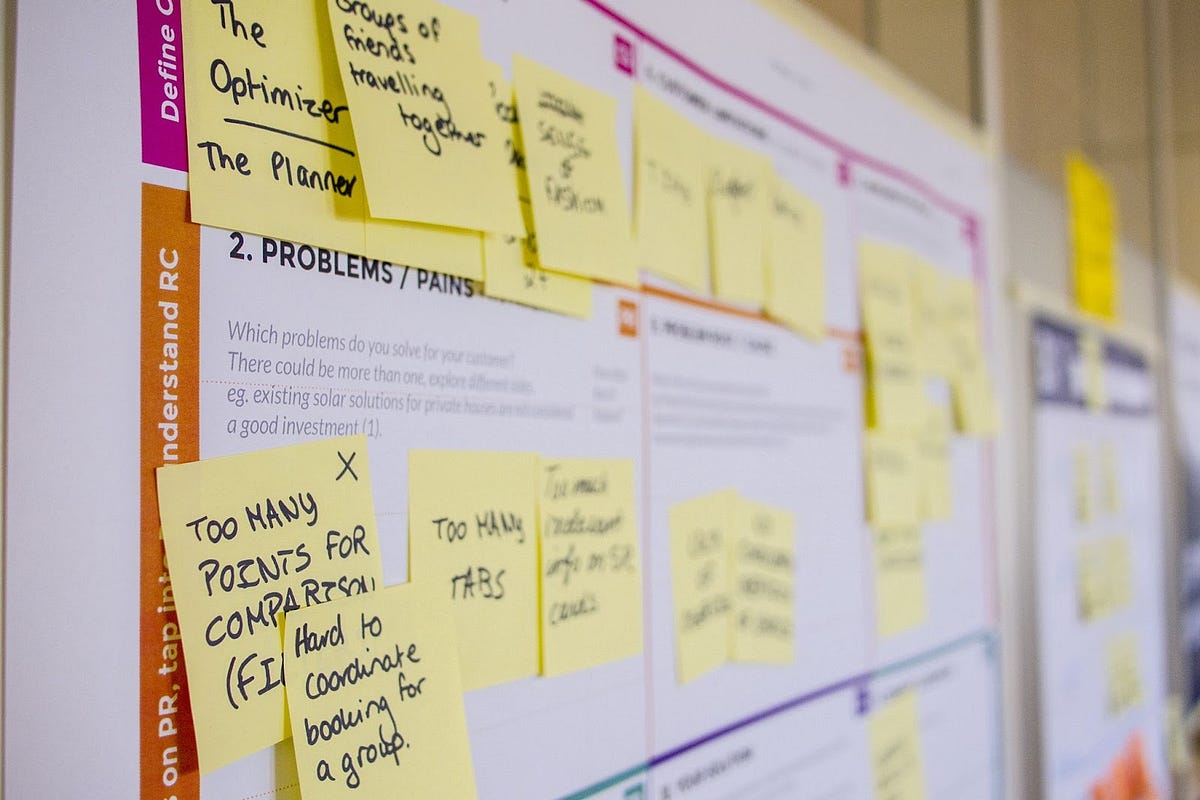As an organization grows, the ability to communicate effectively between an HR leader and the lowest-ranked employee becomes crucial.
Direct lines of leadership between the top and bottom of a company can often become convoluted and difficult to navigate, meaning someone else is often needed to mediate, clearly set attainable goals, and help managers and their employees coexist in harmony.
That someone is the HR leader, who’s responsible for the smooth operation of an organization by developing and implementing policies, providing support to employees, and ensuring the company complies with all laws and regulations.
But what makes a good HR leader?
The qualities are vast and varied, but some of the most important ones are empathy, integrity, strategic thinking, and communication skills. These are effective for both HR operations lead and HR transformation lead roles.
Those are some pretty broad topics, so in this article, we’ll go a little more in-depth and discuss:
- What is an HR leader?
- What skills are essential for HR leaders?
- What makes a good HR leader?
- How can you become a good HR leader?
- Common mistakes and weaknesses to look out for
Let’s get started!
What is an HR leader?
The role of human resources in a modern company is paramount. Turnover across every industry continues to rise, and by 2023, roughly 35 percent of employees each year are expected to leave their job to work somewhere else.
An HR leader is responsible for mitigating this problem by creating a system in which employees feel appreciated and recognized for their work.

They are also responsible for the overall well-being of employees, from recruiting and onboarding new hires to ensuring that existing staff are satisfied with their roles. This includes developing policies around benefits, compensation, and employee development.
An effective HR leader understands the business and can translate complex concepts into actionable items that employees can understand. They work with senior management to align employee goals with those of the company and develop retention strategies that keep the best talent from leaving.
What skills are essential for HR leaders?
To be successful, an HR leader must have strong communication and problem-solving capabilities. They must also be able to work effectively with people from all levels of the organization. But that’s not all:
1. Strategic Thinking
One of the most important skills for an HR leader is the ability to think strategically about both the present and the future. This is being able to step back from the emotional reaction that a single employee may have, and consider the long-term effect that any decision might have on the company.
A few simple questions that HR might ask when thinking strategically are:
- What are our company’s vision and mission?
- What are our core values?
- How do we want to be perceived by our employees, customers, and the public?
- How can we best serve the needs of our employees and shareholders?
- What challenges does our company face, and how can HR best address them?
- What opportunities are available to us, and how can we capitalize on them?
It is not just about making decisions; it’s also about being proactive in anticipating problems and possible solutions. By being proactive, HR can help head off potential conflicts before they have a chance to develop.
Another key part of strategic thinking is being able to see the whole spiderweb. This includes understanding how the company’s various departments interact and how changes in one area might impact another. Business alignment is one of the most important things in today’s market, and it needs to be considered at all times.
Being strategic also means being able to think long-term. This includes looking not just a few months or years down the road but also thinking about how the company will be positioned in 10 or 20 years.
2. Business Acumen
Before an HR leader can consider the implications any decision or policy will have moving forward, they need to understand the business and industry they are working with.
This includes having a strong understanding of financials, market trends, and the overall competitive landscape. HR leaders need to be able to see how different decisions will impact the company as a whole, not just individual departments.
For example, if the company is considering layoffs, the HR leader needs to understand things like the difference between salaried and hourly employees, how changes will impact the bottom line, and what other options may be available.

3. Leadership
It’s right there in the job title — leader. To have any success in a position like this, a person must have superb leadership skills. HR leaders need to be able to motivate and inspire those around them, set an example through their actions, and make good decisions under pressure.
They also need to be able to communicate effectively, build relationships, and handle difficult conversations. This can make it a very stressful position, and one that shouldn’t be taken lightly.
One of the most important reasons for these kinds of skills is that HR leaders need to be able to effectively manage change. In today’s workplace, things are constantly evolving, and new challenges emerge every day. The ability to adapt quickly and help their team members do the same is an essential part of leadership.
It can also be an important factor in promoting a positive work culture. This includes setting the tone for how employees should behave and establishing standards of excellence they can strive toward.
4. Relationship Management
Because they will be in contact with various employees every day, relationship management skills are imperative for any HR leader. They need to be able to build positive lines of communication with employees to gain their trust, understand their needs, and resolve any conflicts that may arise.
Additionally, HR leaders must also be able to manage difficult conversations and deliver bad news in a way that does not damage the relationship.
For example, if an employee is laid off, the HR leader must be able to communicate with them in a way that maintains their dignity and allows for a productive dialogue about the employee’s future.
They also must be able to work with management and executives to ensure that the company’s policies and procedures are being followed. The ability to navigate relationships with both employees and management can be tricky, so consider these questions before any difficult HR conversation:
- How do I approach this situation?
- What is the goal of this conversation?
- Am I listening more than I am talking?
- Is there a better time or place to have this conversation?
The benefits of fostering strong connections between individual departments and HR can be felt in a variety of ways. When different parts of the company can communicate easily, it allows for a more cohesive work environment and improved collaboration on bigger team projects.
Additionally, good relationship management skills can help HR leaders identify potential areas where the company could improve or grow before they would normally reveal themselves.

5. Change Management
When it’s time to make changes–both positive and negative–HR leaders are the ones who will have to navigate the transition.
To be successful, HR leaders must learn to:
- Understand why changes are necessary: It’s not enough to know that changes need to be made. Leaders must also understand why those changes are required in order to create a plan that will be successful.
- Evaluate the risks and benefits: Before implementing any change, HR leaders need to understand what’s at stake. This includes evaluating the risks and benefits of the change for both the organization and employees.
- Communicate the need: This is the first step in getting employees on board. HR leaders need to be able to articulate the business case for change and explain why it’s necessary.
- Minimize resistance: This includes proactively understanding why people may be resistant, what their concerns may be, and crafting a way to address them.
- Ensure changes are implemented effectively: Make sure to set up a plan for implementing changes and ensure everyone understands before it is put into action.
- Measure success: Like any plan, measuring the results is an extremely important part of change management. HR leaders need to be able to track employee performance during and after the change, as well as identify any unforeseen negative consequences.
Helping to captain the ship through a difficult transition is one of the most important things an HR leader can do, and this is where change management skills come in. When times are tough and employees are anxious, it’s up to the HR team to maintain morale and keep things moving forward.
Change management isn’t just about getting people through a rough patch; it’s also about helping them adapt to new circumstances and build a culture of trust. That might mean adjusting to a new boss, new working procedures, or even a whole new company. HR leaders need to be able to anticipate changes and help employees adjust as smoothly as possible.
What makes a good HR leader?
Once you’ve mastered those essential skills, there are other ways to take your leadership to an entirely different level. This means more than just understanding the elements that factor into productivity.
While it is great to know that making small tweaks to the onboarding process can result in the company experiencing a smaller training investment, understanding the impact of those tweaks have an incoming employee can lead to far greater results in the long run.
Being a great HR leader also requires empathy, the ability to see things from other people’s perspectives. That’s why it’s important to be attuned to the emotional atmosphere in your workplace and how different changes (or lack thereof) can affect people’s moods.

Like in so many other aspects of life, communication skills matter above all else. This means being able to share information in a way that everyone can understand, not just the HR department.
A 2021 study showed that 86 percent of employees and executives believe the lack of effective communication is the main cause of workplace failure. That is a staggering statistic and one that correlates directly to the success of the HR department and its leader.
How can you become a good HR leader?
If you have been in the industry for years or are just starting out, there are some simple steps to follow that will allow you to become a good HR leader.
Understand the business
Make sure you have a full understanding of how your business functions. You should understand the entire revenue model, be familiar with the company’s vision and objectives, and know the reason why it came to be in the first place.
Build relationships
You must always be building positive relationships with employees and managers alike. This can be done by being approachable, taking an interest in their work, or even understanding their work/life balance.
If you find this difficult, that’s okay! It can be challenging to build professional relationships in the workplace, especially while representing a department that often has a stigma attached to it of being the “no-fun zone.”
You don’t need to become best friends with anyone, but asking questions about their individual situations will help you down the road when problems or issues arise.
Be the problem solver
If you can foster a reputation for conflict resolution (or even better, solving the problem before it even arises), you’ll already be most of the way to becoming a great HR leader. When people see you as the fixer, they will naturally turn to you for solutions to their issues and provide you with more honest, actionable feedback on the plans that you have already put in place.
For example, when an employee files a complaint, take the time to investigate and get all of the relevant details before taking any action. Make sure that you are looking at the situation from all angles and try to see things from the employee’s point of view.
This will help you to come up with a solution that is fair and reasonable for everyone involved, and immediately give you credibility for any future problems.
In addition, try to be proactive in your problem-solving. Anticipate potential pain points and put contingencies in place before they happen. This will show that you are always planning for the future and can free employees to feel comfortable taking calculated risks knowing you are there to support them.

Final thoughts: pitfalls to watch out for
If you have read this far, you have already taken the first step to becoming a great HR leader. Before you go, let’s take a look at some of the common mistakes and weaknesses that you’ll have to watch out for:
- Shortsightedness: HR leaders are often so bogged down in the day-to-day operations of their departments that they lose sight of the big picture. They become narrowly focused on researching a single issue, and fail to develop a long-term strategy for their department or organization.
- Lack of people skills: Many HR leaders are great at crunching numbers or developing policies and procedures, but they lack the people skills necessary to manage and motivate their staff. As a result, they may have difficulty building a team that is both productive and cohesive.
- Lack of financial knowledge: At times, those who do not have a full understanding of the financial side of a business may not be able to see the big picture and may not understand how their department impacts overall success. As a result, they may make decisions that are not in the best interest of the company.
- Forgetting the customer: While at the end of the day HR works for the company, sometimes it is important to consider how changes made internally can affect the external opinion of the organization. Always try to take a step back and see how a new policy will be regarded by the customer as well.
If you can avoid some of these mistakes, while working on the core skills listed above, you’ll become a great HR leader in no time!
